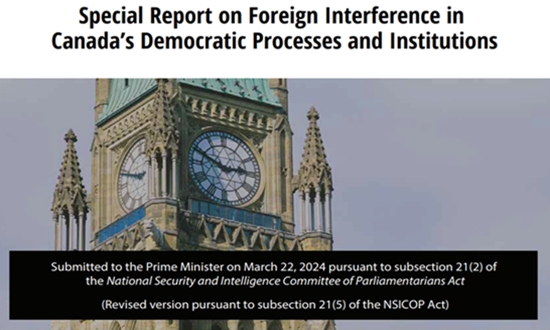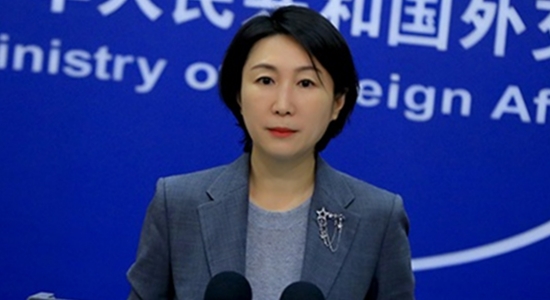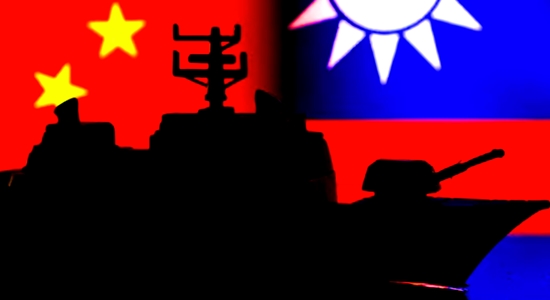
A Canadian member of parliament who reveals the secret could get thrown into prison for up to 14 years, unprotected by parliamentary privilege.
The secret is the identities of the “perhaps a dozen witting or unwitting agents of the Chinese Communist Party (CCP) who now sit in Canada’s parliament” (“Opinion: Will the Liberals call an early election to dodge Chinese meddling revelations?,” Financial Post, December 11, 2024).
This kind of thing is being hidden by force of law?
The Supreme Court agreed last week to hear an appeal on the question of parliamentary privilege…. If it agrees with the appellant—constitutional law professor Ryan Alford of Lakehead University—Canadians could learn the identity of perhaps a dozen witting or unwitting agents of the Chinese Communist Party (CCP) who now sit in Canada’s parliament.
Many, perhaps most, in this dirty dozen are believed to be Liberals, though Conservatives may also be involved, as the prime minister himself recently hinted at the public inquiry into such interference. Members from other parties may be on the list, too. The CCP doesn’t discriminate in whom it targets for corruption.
The court case involves 2017’s National Security and Intelligence Committee of Parliamentarians Act (NSICOP)…. On the one hand, it allows MPs who sit on the top-secret NSICOP committee to learn of illicit activities by foreign countries. On the other hand, they have to bind themselves to Canada’s Foreign Interference and Security of Information Act, which strips them of their rights as parliamentarians to expose wrongdoing to the rest of parliament and the Canadian public. The penalty for revealing secret NSICOP committee information is up to 14 years in prison….
NSICOP’s special report in June suggested collusion with Chinese agents was extensive, and included providing “information learned in confidence from the government to a known intelligence officer of a foreign state” and “transfers of funds approximating $250,000” from the CCP to help pro-Chinese candidates….
Although NSICOP’s parliamentary members know who among their peers are implicated, their vow under the Act prevents them from naming names. The Supreme Court case challenges the constitutionality of muzzling our elected officials in this way.
One can imagine types of “national security and intelligence” information that should be kept under wraps. But which Canadian legislators are spies or quasi-spies or unwitting dupes of the Chinese Communist Party does not at all seem like one of these types.
The 92-page NSICOP report, “National Security and Intelligence Committee of Parliamentarians: Special Report on Foreign Interference in Canada’s Democratic Processes and Institutions,” published in June 2024, considers many forms of CCP influence or interference. Many sections are redacted.
One of the redacted sections of the publicly available version of the report, the version available through the above link, is replaced by this bracketed explanation:
Three paragraphs were deleted to remove injurious or privileged information. The paragraphs noted reported efforts by the PRC to tailor its targeted influence operations against federal parliamentarians, centered around supporting pro-PRC legislators and punishing their anti-PRC colleagues…. The paragraphs also described the limited distribution of this information within government, including, but not limited to, the National Security and Intelligence Advisor (NSIA), the Director of CSIS, the Minister of Foreign Affairs, the Minister of National Defence, and the Chief of Staff to the Prime Minister. The paragraphs also noted a potential risk to some Canadian parliamentarians, notably in the context of their travel to the PRC.
Information about “efforts by the PRC to [target] federal parliamentarians [by] supporting pro-PRC legislators and punishing their anti-PRC colleagues” is information pointless for anybody in the Canadian government to have if no one who knows it may act on it—by, for example, publicizing it.
The Financial Post article doesn’t make clear whether every single member of the Canadian government privy to the unredacted report—including the prime minister?—could be imprisoned for divulging the secret of which of Canada’s sitting legislators are subject to witting or unwitting CCP influence.
But it does seem that all depends now on how Canada’s Supreme Court rules.





